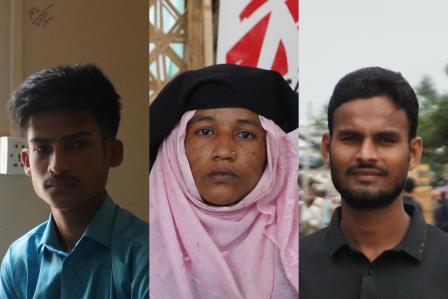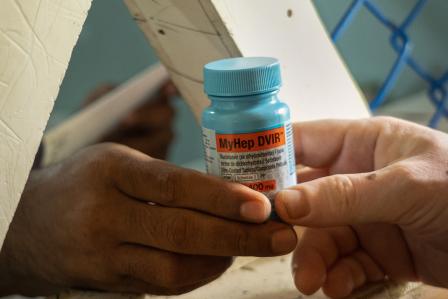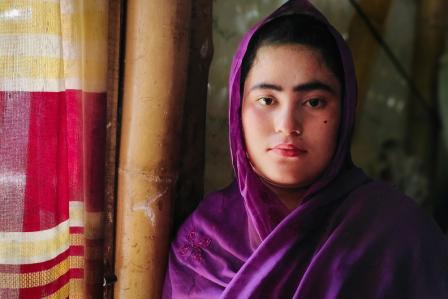Bangladesh: Massive funding shortfalls put Rohingya refugees at risk of an acute malnutrition crisis
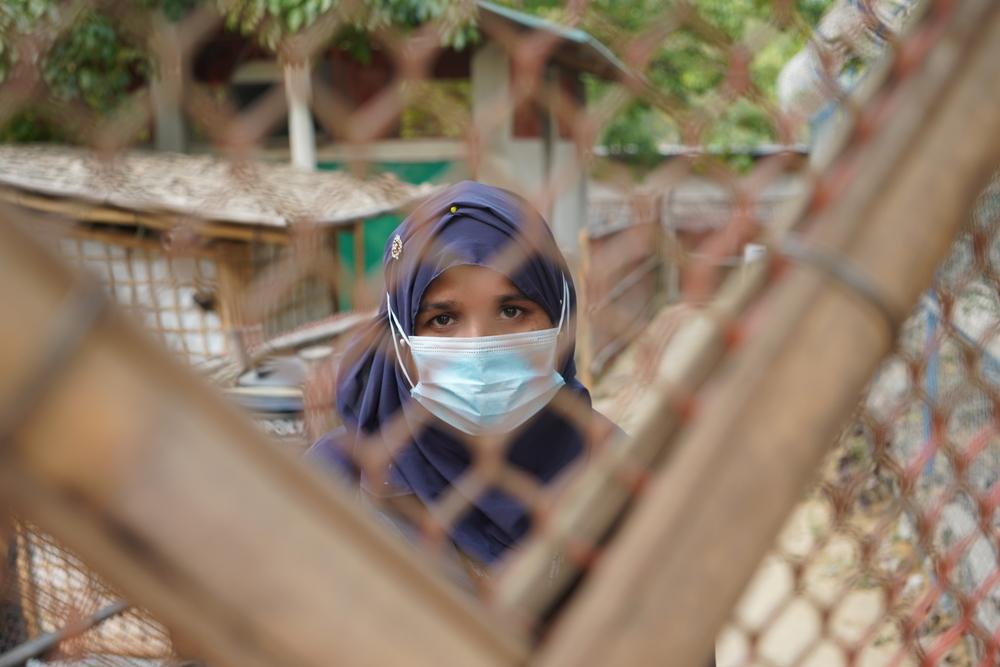
Portrait of a Rohingya woman living in the refugee camp in Cox's Bazar. Bangladesh, March 2021. © Pau Miranda
An estimated more than 1 million Rohingya are confined in the camps in Cox’s Bazar district, where they arrived after fleeing violence in nearby Myanmar. This includes another estimated more than 60,000 people that have arrived since January 2024 after renewed violence in Myanmar. Rohingya are almost completely dependent on humanitarian assistance in Bangladesh, including for food, as they have barely any freedom of movement outside of the camps, are prohibited from formal employment and have no alternative legal sources of income.
Doctors Without Borders General Director Vickie Hawkins gave a statement following an announcement of funding shortfalls, which are reducing food rations for Rohingya in the camps in Cox’s Bazar:
"As the ripple effect of cuts in the humanitarian sector continue to reverberate around the world, more than one million Rohingya refugees remain confined to camps in Cox’s Bazar, Bangladesh. Last week the World Food Programme made an alarming announcement that they planned to cut food rations in half due to funding shortfalls. We’re talking here about more than a million stateless people, who have no right to work, no land and no other legal means of subsistence to feed themselves.
We’re extremely concerned that a reduction in food rations would only further heighten the Rohingya refugee crisis and the sense of desperation already prevalent throughout the camps. We know what desperation and the need to survive in this closed camp creates in terms of violence, and the risk of exploitation, particularly for women and children. Many refugees tell us that they are afraid it will only get worse."
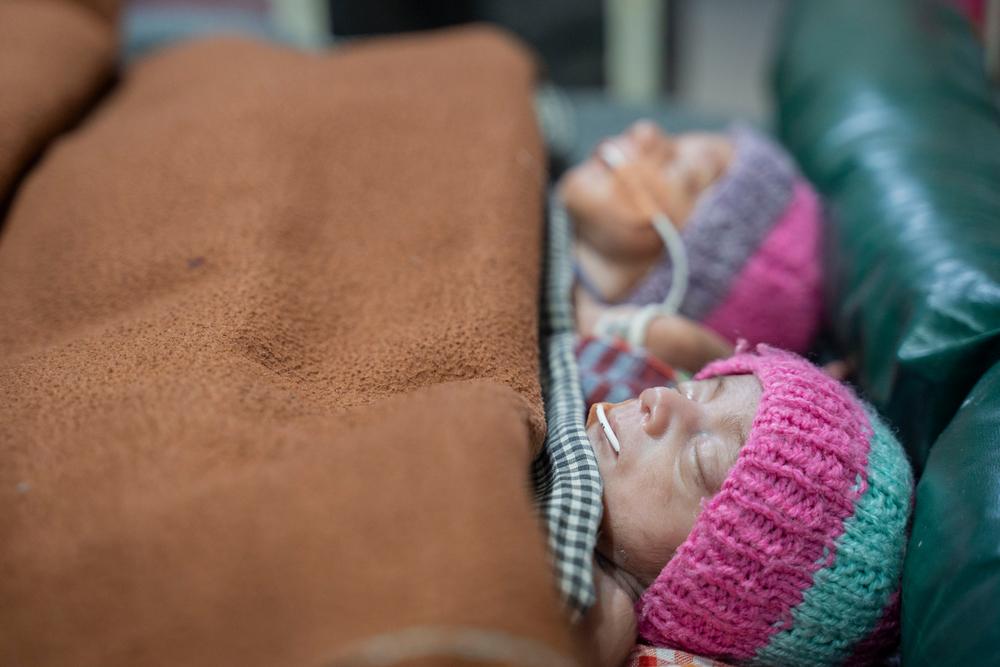
Twin babies, who were born at home prematurely at 29 weeks, were admitted to MSF’s Goyalmara Hospital for neonatal care. Bangladesh, June 2022. © Saikat Mojumder/MSF
"Young children will be particularly at risk to the permanent effects of stunting on one hand, whereby their growth essentially stops owing to a lack of food, and on the other, also being more prone to illnesses while malnourished. Adults, many of whom are looking after children or elderly family members, will likely be forced to engage in negative coping mechanisms, from limiting their own diets to feed their families to pursuing exploitative income-generating activities.
This announcement comes at a time when people who recently arrived in the camps are already dependent on other people’s food rations to survive. In the words of Rahima, who recently fled violence in Myanmar and is sheltering with extended family in the camps, 'I’m a burden. They share their meager food with me.’
Masuda, another Rohingya woman, told us how the rations she and her family get, even now, are never enough."
"The Rohingya have been kept in a situation of donor dependency. Donors, governments, and international agencies must help close the (USD) $81 million funding gap. We’re calling on donors to pledge emergency funds by April to secure vital food rations for refugees, for governments to ramp up short-term humanitarian aid to meet urgent needs, and for international agencies to join forces with the food security and nutrition agencies to ensure resources are deployed swiftly and transparently.
We know today it is going to be harder than ever to mobilise these resources but a way must be found because to withhold humanitarian assistance from a population that have been deliberately kept dependent on it is really unconscionable.”
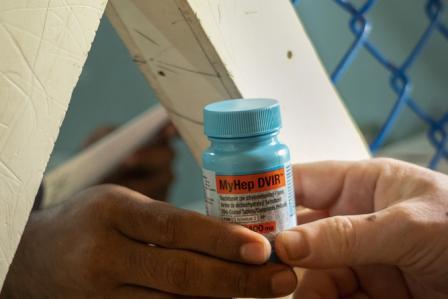
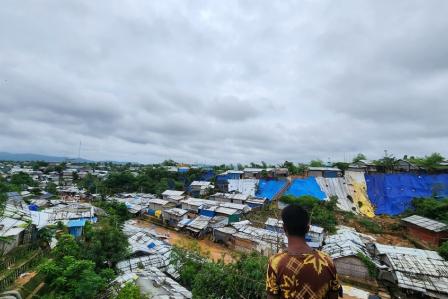
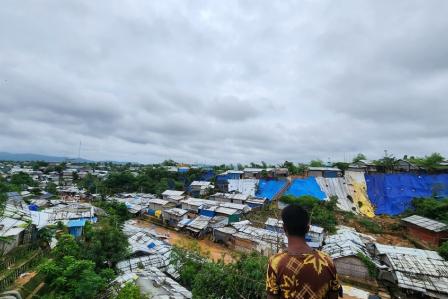
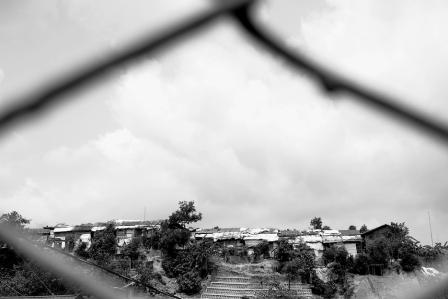
-resize3824.jpg?h=ccba4427&itok=fhZpn4oZ)
